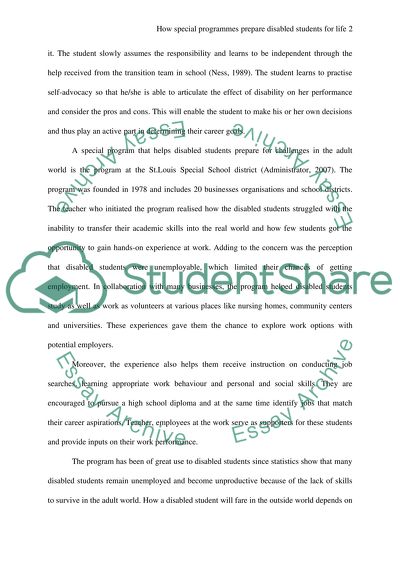Special education programmes in preparing students for the adult world Essay. Retrieved from https://studentshare.org/education/1547057-special-education-programmes-in-preparing-students-for-the-adult-world
Special Education Programmes in Preparing Students for the Adult World Essay. https://studentshare.org/education/1547057-special-education-programmes-in-preparing-students-for-the-adult-world.


